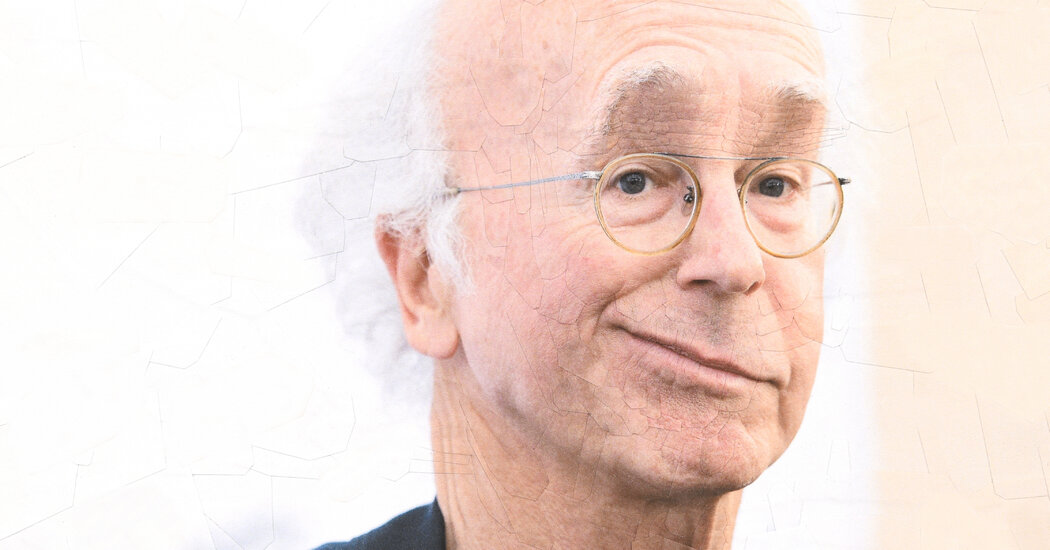At the end of his 1999 HBO special, “Larry David: Curb Your Enthusiasm,” David wraps up a stand-up comedy set by telling his audience he has no more material for them. “This is what happens when you run out of nothing,” he says.
The joke refers to the famous description of “Seinfeld,” the sitcom that David created with Jerry Seinfeld, as “a show about nothing.” It is also a bit of a lie.
. . .
On “Curb,” David starred as “Larry David,” simultaneously the world’s most comfortable and uncomfortable man, registering his complaints to a cast of sounding boards: Cheryl (Cheryl Hines), his wife and later ex-wife; Jeff (Jeff Garlin), his manager; Leon (J.B. Smoove), his permanent houseguest, who joined the series in mid-run and filled the chaos-demon role that Kramer (Michael Richards) did on “Seinfeld.”
You might say that “Curb” was simply a premium-cable version of “Seinfeld,” with improvised dialogue. The material was filthier — recall the obituary typo that rendered “beloved aunt” into a phrase unairable in NBC prime time — the milieu more autobiographical and more overtly Jewish. (“Seinfeld” made its cranky Larry David alter ego, Jason Alexander’s George Costanza, into a crypto-Jew with an Italian surname.) The affluent characters of “Curb” spent as much time eating breakfast and contemplating sandwiches as the “Seinfeld” gang did. They just ran up a higher tab.
But “Curb” was its own thing, for its own time. Much as “Seinfeld” captured the ironic vibes of the end of the millennium, “Curb” was the signature comedy for the agitated, antagonistic era of the 21st-century social internet.


This is the best summary I could come up with:
The material was filthier — recall the obituary typo that rendered “beloved aunt” into a phrase unairable in NBC prime time — the milieu more autobiographical and more overtly Jewish.
He also believes other people are sheep, following petty, nonsensical rules, whether those govern using an empty bathroom stall for the disabled or a restaurant’s refusal to serve breakfast after a certain hour.
A recurrent theme of the show is his affluent character believing himself to be persecuted by service employees, including, in the final season, a car valet, a masseuse, a hotel housekeeper and multiple restaurant servers.
(While the plot might seem uncomfortably prescient during the Gaza war in 2024, when it premiered in 2011 it alluded to the controversy over a planned Islamic center in Lower Manhattan that was mislabeled a “ground zero mosque.”)
It did the same with the show’s theme music, “Frolic,” which users slapped onto video of public figures in moments of humiliation or regret, like Chris Christie giving a thousand-yard stare as he stood behind Donald J. Trump, whom he’d endorsed in the 2016 Republican primary.
Still, given the unpredictable schedule of the series — up to now, it had done just three seasons in a decade — I wonder why David felt the need to make a finale at all, and whether the show might just return one day, like George Costanza going back to work after quitting.
The original article contains 1,492 words, the summary contains 235 words. Saved 84%. I’m a bot and I’m open source!